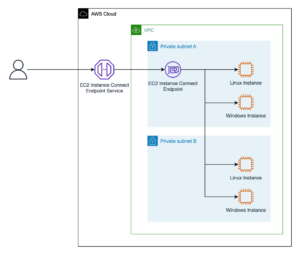In this tutorial, we will explore the concept of uploading large files in chunks using the powerful Plupload library and PHP. We’ll delve into the benefits of chunked file uploads compared to single-post uploads and provide step-by-step instructions to implement this efficient and reliable file upload method. Whether you’re a developer or a layman, this …
If you’re running a server with CloudPanel and need more disk space to accommodate your growing data, this tutorial will guide you through the process of adding additional disk space to your server. Format a new disk in Linux: Connect the new disk to your Linux server. Open a terminal or shell. Use the lsblk …
In this tutorial, we will explore how to automate website testing using Selenium and Python. Automating website testing can save you time and effort by simulating user interactions and automating repetitive testing tasks. We will cover the basics of setting up Selenium, writing automated test scripts in Python, and executing them to automate website testing. …
In today’s digital landscape, having a reliable and efficient content management system (CMS) is essential for businesses and individuals alike. Ghost CMS is a popular open-source platform known for its simplicity and powerful features. By combining the flexibility of Docker containers and the convenience of CloudPanel, you can easily deploy and manage your Ghost CMS …
In this blog post, we will guide you through the process of creating a shell script that will monitor server disk space and send email alerts using the Simple Mail Transfer Protocol (SMTP). We will make use of the “sendEmail” package, which ensures reliable email delivery, unlike when using the “sendmail” package. By the end …
Experience the seamless web server management of CloudPanel while enhancing your security with the real-time benefits of CrowdSec. By integrating CrowdSec into CloudPanel, you can effortlessly manage your web server while fortifying its security. This powerful combination simplifies web server management and strengthens its defenses, providing a hassle-free hosting experience. With CloudPanel and CrowdSec working …
Installing CrowdSec: Enhancing Security with Collective Intelligence. Mitigate threats in real-time through crowd behavior analysis and decentralized threat data sharing. One of the key benefits of this solution is its adaptability and customization options. Users can define their own detection rules and actions, tailoring the security approach to their specific needs. This flexibility makes it …
In a recent press release, Amazon announced the launch of the Amazon EC2 Instance Connect (EIC) Endpoint. This new feature simplifies secure connectivity to Amazon EC2 instances within Amazon VPC, eliminating complexities like setting up bastion hosts and managing public IP addresses. Let’s explore the capabilities of EIC Endpoint and how it enhances security and …
CloudPanel is a powerful control panel that allows users to manage and monitor their cloud infrastructure easily. In this article, we will walk you through the process of installing CloudPanel on a fresh server. By following these steps, you’ll be able to Install CloudPanel and access securely. Step 1: Login via SSH to the Server …
Setting up a self-hosted mail server can be complex, but with MailCow, the process becomes more manageable. In this guide, we’ll walk you through the installation and configuration of MailCow, an open-source mailing script based on Dovecot, Postfix, and SoGo. By the end of this tutorial, you’ll have a fully functional self-hosted mail server running …










